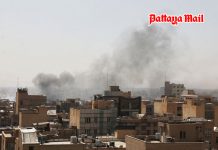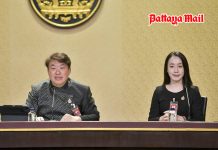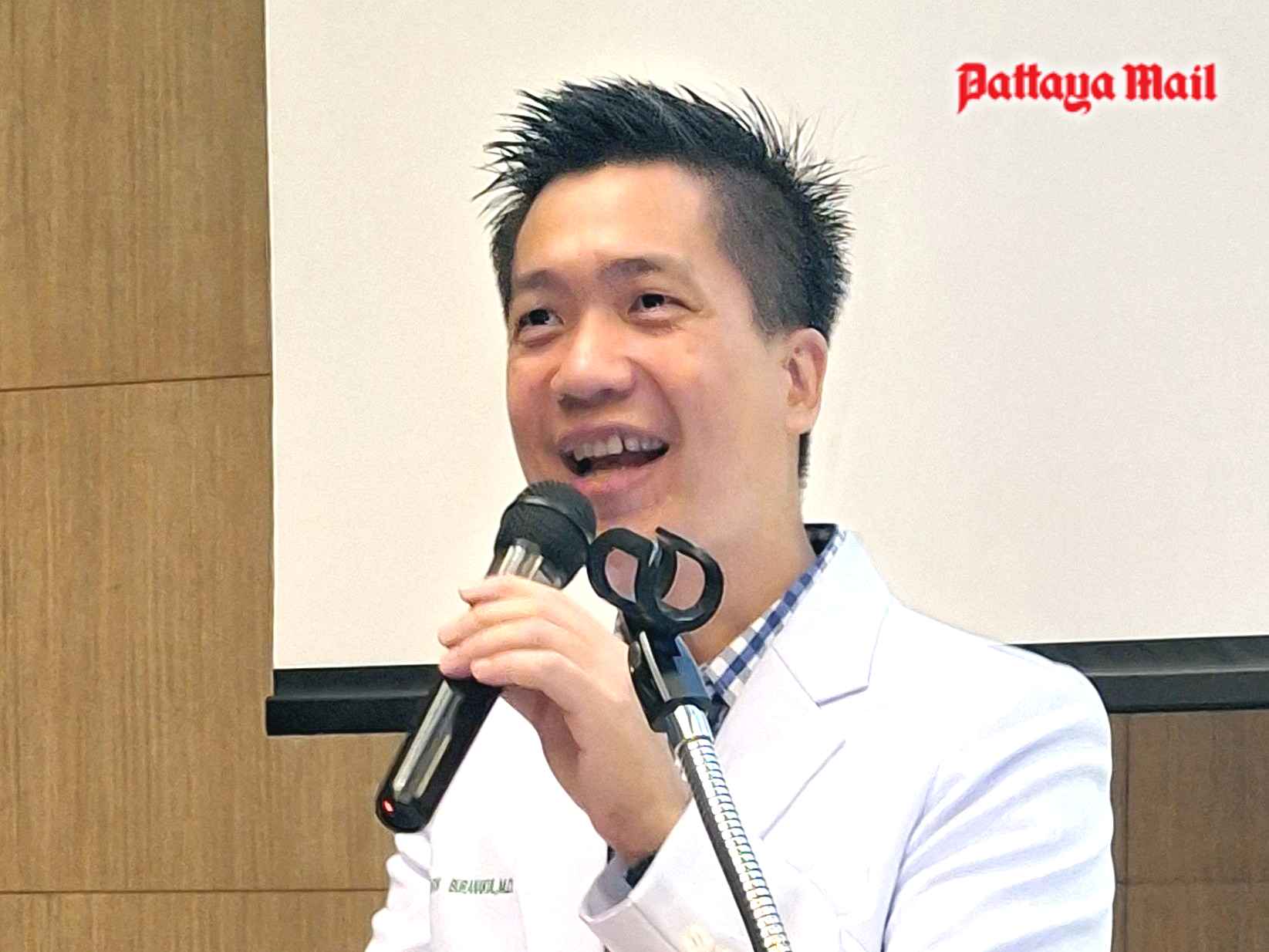
PATTAYA, Thailand – A topic that should be high on everyone’s need to know list, When Stroke Strikes, was the subject the presentation given by Dr. Nattakarn Buranakul, MD, to the Pattaya City Expats Club on Wednesday, October 25. Dr. Nattakarn is a Neurologist from the Neuroscience Center of Bangkok Hospital Pattaya (BHP) who specializes in the treatment of strokes.
The one clear message from his talk was that “Time is Brain” noting that from the time a stroke strikes, brain cells begin to be lost. If a stroke is suspected, you should go immediately to the hospital where if it is confirmed, can be treated effectively. But time is of the essence, the sooner treatment begins the sooner one stops losing brain cells which if continued can lead to long term disability or even death. He noted that stroke is the 2nd leading cause worldwide of death and disability, but in Thailand, it is 1st.
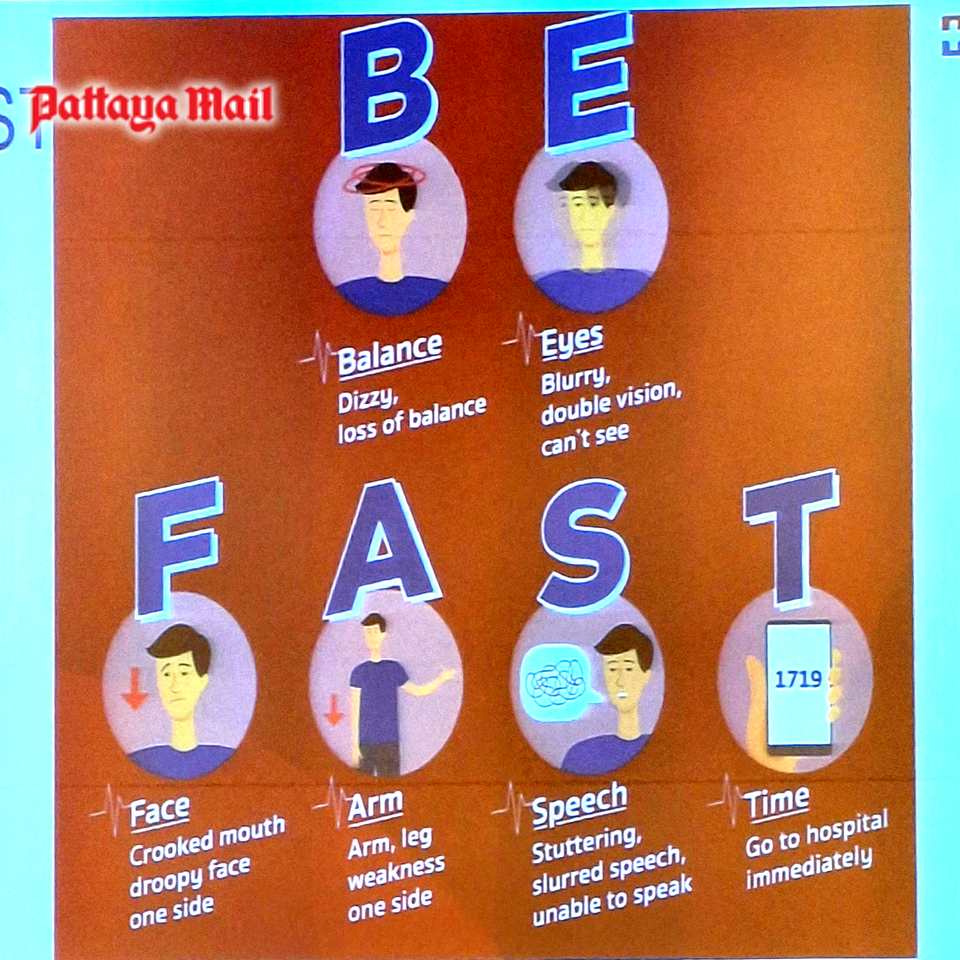
Using various visual aids, he described the two types of stroke, Ischemic (blood clot stops the flow of blood to an area of the brain) and Hemorrhagic (weakened/diseased blood vessels rupture and blood leaks into brain tissue). Both of which can be treated within 24 hours of their occurrence but to be effective, intervention should be as soon as possible.
 Dr. Nattakarn displayed the “BEFAST” chart which should be remembered as it provides a ready means of remembering the symptoms of a stroke which will appear suddenly and without any warning: B – Balance (dizzy, loss of balance); E – Eyes (blurry, double vision, can’t see); F – Face (crooked mouth and/or droopy face on one side), A – Arm (arm or leg weakness on one side), S – Speech (stuttering, slurred speech, unable to speak), and T – Time (time is of the essence, go to the hospital immediately!)
Dr. Nattakarn displayed the “BEFAST” chart which should be remembered as it provides a ready means of remembering the symptoms of a stroke which will appear suddenly and without any warning: B – Balance (dizzy, loss of balance); E – Eyes (blurry, double vision, can’t see); F – Face (crooked mouth and/or droopy face on one side), A – Arm (arm or leg weakness on one side), S – Speech (stuttering, slurred speech, unable to speak), and T – Time (time is of the essence, go to the hospital immediately!)
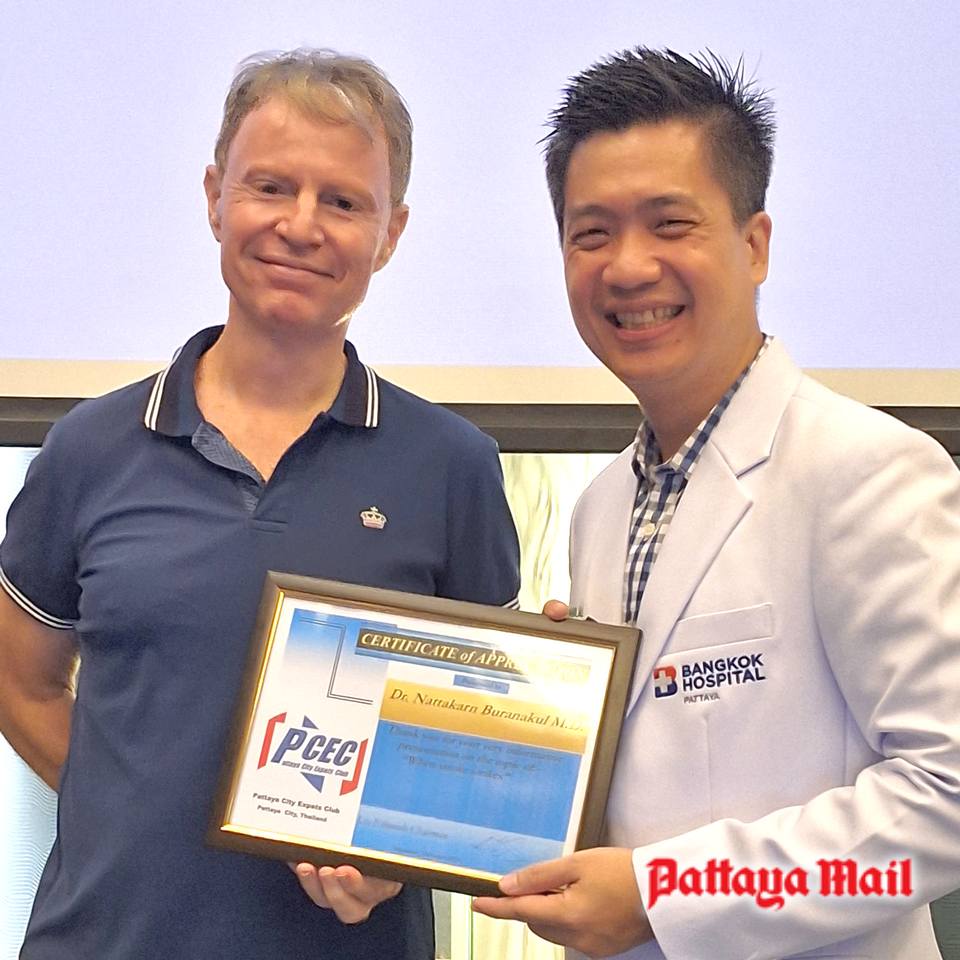
He mentioned the risk factors for a stroke are: high blood pressure, high cholesterol, cardiovascular disease, diabetes, smoking and/or drug use, obesity, lack of exercise, sleep apnea, and heavy alcohol use. Dr. Nattakarn emphasized that atrial fibrillation (an irregular and often very rapid heart rhythm) and untreated sleep apnea (sleep disorder in which breathing repeatedly stops and starts) are very high-risk factors. Another risk factor is the narrowing of the Carotid artery which can cut of the blood supply to the brain or some of the plaque can break lose resulting in a blood clot; both of which can cause a stroke.
Screening for risk factors includes: Physical and Neurological Exams; blood tests for blood glucose, Triglyceride, HDL, LDL and cholesterol levels; imaging using Computerized Tomography, Magnetic Resonance Imaging, Magnetic Resonance Angiography; and Cerebral Angiogram, Carotid Doppler Ultrasound, and Electrocardiogram.
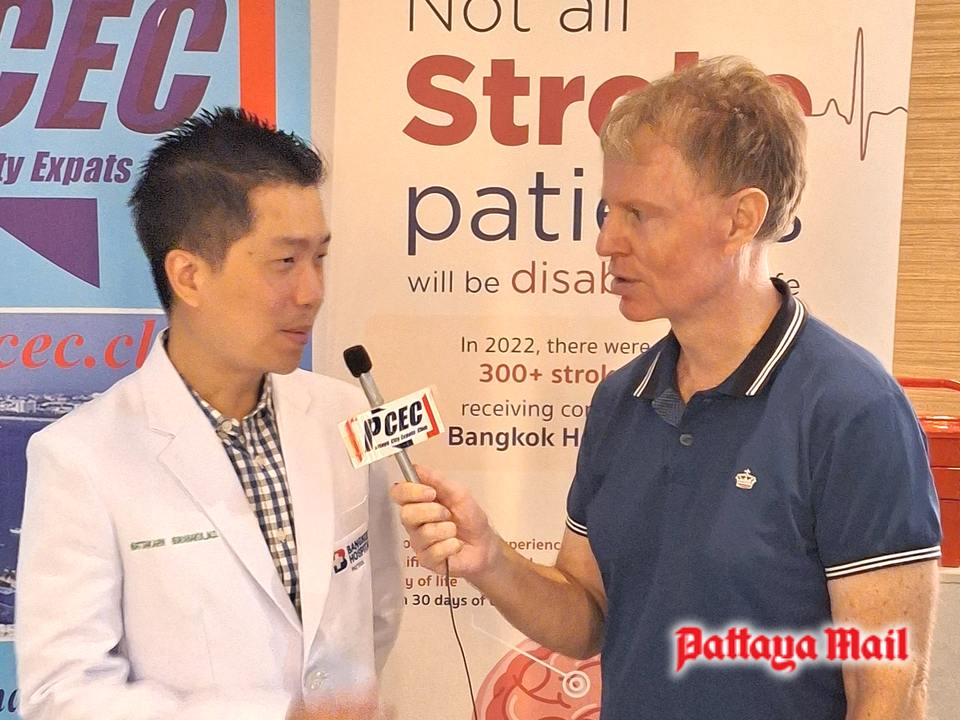
Dr. Nattakarn also described the various methods for intervention in the event of a stroke which included: Carotid Endarterectomy (insertion of a tube for temporary blood flow reroute around plaque), Carotid angioplasty (uses a catheter, through the arteries to the narrowed carotid artery in the neck where the surgeon inflates a tiny balloon at the end of the tube to open the narrowed area), Carotid stenting (similar to the angioplasty with the addition of insertion of a stent), Mechanical thrombectomy (an endovascular technique for removing blood clots from the brain after an ischemic stroke).
BHP staff were also available before and during the meeting to provide some health assessments including using a Carotid doppler ultrasound machine for a brief assessment; those undergoing this test were given a lucky draw ticket for 5 vouchers to be given for a more complete Carotid doppler ultrasound examination at BHP (2,500 baht value).
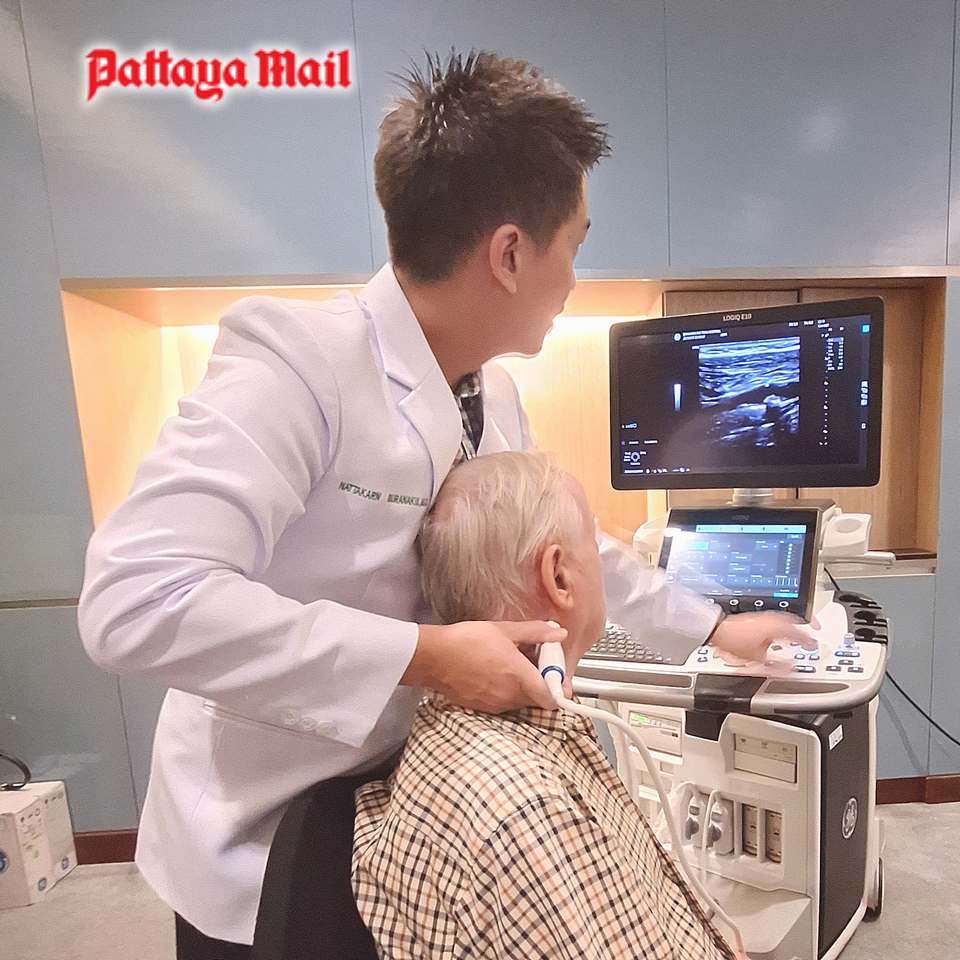
After the Lucky Draw, MC Ren Lexander brought everyone up to date on upcoming events and called on George Wilson to conduct the Open Forum portion of the meeting where the audience can ask questions or make comments about Expat living in Thailand, especially Pattaya. To learn more about the PCEC, visit their website at https:/pcec.club. You can view Dr. Nattakarn’s presentation on the PCEC’s YouTube channel at: https://www.youtube.com/watch?v=mF5c3SyxBWk.




